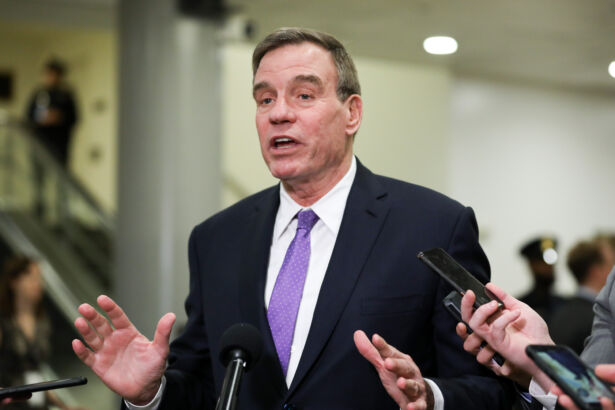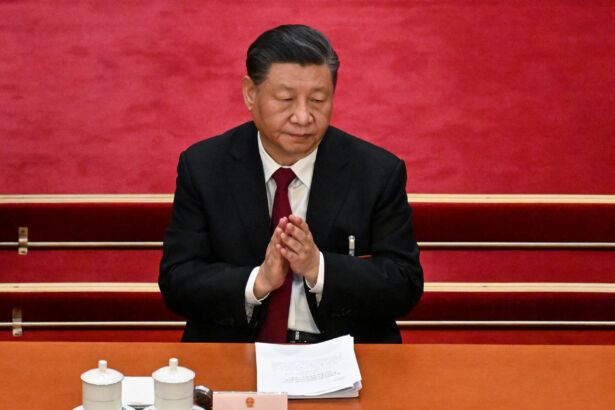Director of National Intelligence (DNI) Avril Haines told the Senate on March 8 that the Chinese Communist Party (CCP) is the U.S. intelligence community’s “unparalleled priority” as Beijing draws rising pushback over its aggression towards Taiwan and its relationship with Russia.
“The CCP represents both the leading and most consequential threat to U.S. national security and leadership globally in its intelligence-specific ambitions and capabilities, making it for us our most serious and consequential intelligence rival,” Haines said.
Haines made the remarks at a Wednesday Senate Intelligence Committee hearing on worldwide threats, and as the agency released the unclassified version of its annual threat assessment report (pdf).
Expansion At US Expense
Haines warned that China’s aggressiveness, particularly toward Taiwan and its Western allies, is accelerating as the communist regime seeks to maintain its ascendancy on the world stage.
“[China], which is increasingly challenging the United States, economically, technologically, politically and militarily around the world, remains our unparalleled priority,” Haines said in her opening testimony.
However, she warned that the CCP is still seeking to expand its influence and is “increasingly convinced that they can only do so at the expense of U.S. power and influence and by using coordinated whole-of-government tools to demonstrate strength and compel neighbors to acquiesce to its preferences.” She cited China’s ongoing territorial disputes with nations like India, Japan, and its ongoing aggression towards Taiwan, the self-ruled island the CCP claims as its own.
Haines listed a litany of China’s overarching policy goals: the continued expansion of its military and nuclear capacity, research and development of counter-space weapons to challenge burgeoning U.S. control of the upper atmosphere, and others that seek to unseat the United States from the top of the world stage.
Chinese leader Xi Jinping’s primary foreign policy goal is “to reshape global governance in line with its preferences and governance standards that support its monopoly of power within China,” she said.
Committee Chairman Mark Warner (D-Va.), one of the Senate’s more moderate Democrats, echoed this position in his opening statement hearing which warned about Chinese ascendancy, saying that the CCP recently passed the point of becoming a “near-peer competitor with the United States.”

Xi Takes Aim at US
Recently, Xi and the Chinese regime have become increasingly aggressive, Haines said, pointing to the Chinese leader’s remarks at the opening of the National People’s Congress earlier this week.
Xi’s March 6 remarks on the sidelines of the National People’s Congress, the regime’s rubber-stamp legislature, were notable because he directly referenced the United States as the source of blame for China’s troubles. Xi typically avoids direct references in such instances.

“Western countries—led by the U.S.—have implemented all-round containment, encirclement and suppression against us, bringing unprecedentedly severe challenges to our country’s development,” Xi said, according to a readout from state-media outlet Xinhua.
Haines cited this speech as a cause for alarm, saying it indicated that China was losing faith in reaching a settlement through diplomacy with the United States.
“Xi’s speech this week was the most public indirect criticism that we’ve seen from him to date and probably reflects growing pessimism in Beijing about China’s relationship with the United States, as well as Xi’s growing worries about the trajectory of China’s domestic economic development and indigenous technology, innovation challenges that he now blames on the United States.”
Xi was trying to present rising tensions with Washington as being the fault of the United States rather than the CCP, Haines said.
China Still Seeks to Avoid Escalation
Still, Haines also reported intelligence officials’ assessment that Beijing does not wish to actively alienate the United States, as this risks further sanctions even as the country’s economic growth has begun to plateau.
Intelligence officials suspect that China will continue to have trouble kindling growth, she said.
Specifically, China is having issues continuing to grow economically “because China’s era of rapid catch-up growth is ending and structural issues such as dead demographics, inequality, overreliance on investment, and suppressed consumption remain,” according to Haines.
She said that, notwithstanding China’s blustering over the U.S. military’s destruction of an espionage balloon over the continental United States, the CCP continues to believe that “it benefits most by preventing a spiraling of tensions and by preserving stability in its relationship with the United States.”
Of particular concern to the United States is that China may seek to take advantage of the international confusion caused by the Russo-Ukrainian War to attempt its long-lived goal of taking over Taiwan. Intelligence officials also worry that China may continue to make overtures to Russia, an alliance that could be catastrophic for U.S. interests if it came to fruition.
Congress Turns Up Heat on China
Recently, Congressional members of both parties have taken an increasingly aggressive stance on the CCP, particularly following the violation of U.S. airspace by a Chinese espionage balloon.
In February, both chambers voted unanimously in favor of a resolution condemning the CCP for the territorial violation, a rare show of concord in an otherwise divided Congress.
The Senate hearing came as a separate hearing in the House begins an investigation into the origins of the COVID-19 pandemic. In recent weeks, both the FBI director and the Department of Energy concluded that it was “likely” that the pandemic resulted from a lab leak from the Wuhan Institute of Virology.
Warner took the opportunity to reference the lower chamber’s hearing and gave his endorsement.
“Let’s be clear, despite China’s denials, it is entirely fair for us to ask whether a virus that has killed at least 6.8 million people so far might have been accidentally released from a lab,” Warner said.
From The Epoch Times
